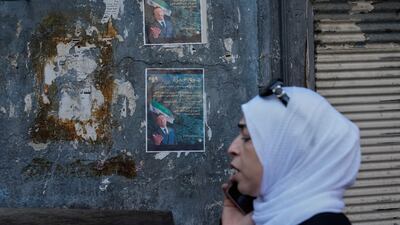Municipality workers were dusting the cobblestone streets of Old Damascus on Saturday, while bakers tended ovens to produce a traditional pizza-like pastry filled with white cheese. Cars barely moved on the outer ring road in a city of relentless traffic.
There were no signs that a poll would take place on Sunday to select the country’s first post-Bashar Al Assad parliament. There were no party rallies, manifestos, ad campaigns or other hallmarks of an open election. “No one cares because it is a nomination, not an election,” said Sara Raed, a civil engineer.
A graphic designer who gave his name as Bassam said he did not even know that elections were to take place. Voting and running for the new parliament has been limited to 6,050 people appointed by an election commission, itself chosen by President Ahmad Al Shara in June.
Among those 6,050 voters, 1,578 have declared themselves candidates for 140 seats. Mr Al Shara will directly appoint the remaining members of the 210-seat legislature.
Authorities have acknowledged that the upcoming poll lacks broad representation, but insist it is part of a five-year transition from the old regime towards a pluralistic system.

An offensive by Hayat Tahrir Al Sham (HTS), a splinter group of Al Qaeda led by Mr Al Shara, ousted Mr Al Assad in December 2024, ushering in Sunni political ascendancy. Syria became the only country among the Arab uprisings where the security apparatus underpinning the old system completely collapsed and was replaced by a new one.
Muhamed Wali, a member of the Higher Committee for the People's Assembly Elections, said the current arrangement for choosing a parliament was the only realistic option, citing post-civil war instability and the fact that many Syrians lack official documents. He said the new legislature will convene this month and begin legal reforms aimed at reviving the economy.
Parliaments under the five-decade Assad family rule were largely rubber stamps, providing legal cover for monopolies held by the ruling elite. In 2000, the legislature swiftly amended the constitution to lower the minimum presidential age, allowing Bashar Al Assad to inherit power from his father, Hafez.
Haid Haid, a Syrian political researcher, told an online panel organised by the Syrian Justice and Accountability Centre that although there were consultations with local communities, the election process has lacked monitoring and “is subjective, not objective”.
Some candidates have posted their photos on social media, with slogans offering little indication of their political goals. “With you, and for you,” reads the campaign slogan of Hafez Ezzedine, running for the central city of Homs. Syrian human rights lawyer Mohammad Abdullah expects the new parliament to further consolidate Mr Al Shara’s power rather than create an independent legislative branch.
Earlier this year, a national dialogue conference to help Syrians chart their political future was criticised as hastily convened and not truly inclusive. In addition, outbreaks of sectarian violence have deepened mistrust among religious minorities towards the new leadership.
Sunday’s vote will exclude the mostly Druze province of Sweida and areas in the north and east controlled by the predominantly Kurdish Syrian Democratic Forces. Syrian activist Rola Baghdad said resolving the country’s violence requires genuine political institutions, in contrast to a parliament “imposed” by the authorities.


